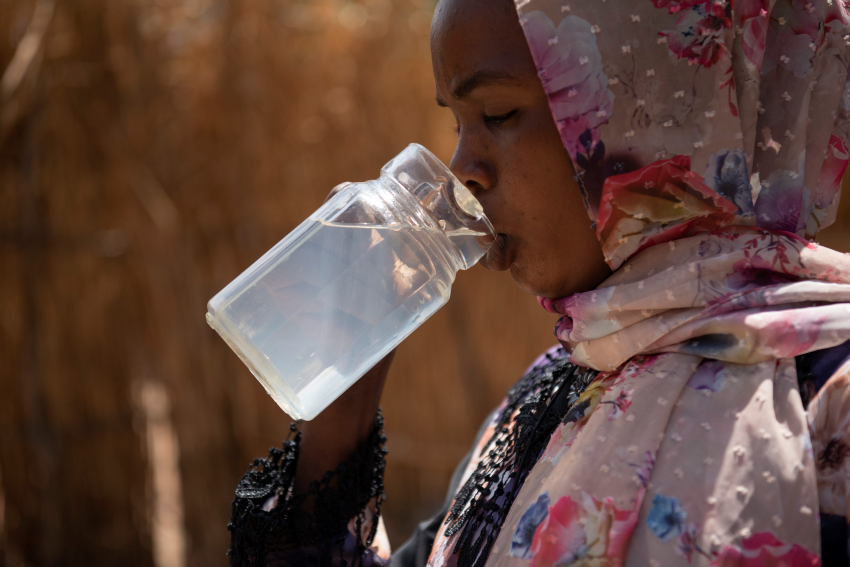Hope in a drop of water: The Urgency in Averting A Global Water Crisis
New report by Norwegian Church Aid celebrating our 75th Jubilee.

UNSAFE WATER: Habiba Adam Adam drinks unsafe water dug out from a dried up river bed. Photo: Håvard Bjelland/NCA.
Hope In a Drop of Water. The Urgency in Averting A Global Water Crisis. (pdf)
We are facing a global water crisis. If we do not manage the world’s most valuable resource more effectively and equitably, it is estimated that as many as five billion people will be living in areas with insufficient access to safe water in 2050 according to the UN Water report 2022.
Extreme weather with destructive floods, droughts and heat waves are hitting the planet and its inhabitants. Water resources, under and above the ground, must be better managed to adapt to this new normal. For many local communities it is urgent to adapt by better management of water sources, above and below the ground, make use of new agricultural methods, and by regulating against pollution and overuse. We must be able to both deal with the energy crisis, prepare for green transition, and cut emission from fossil fuel to allow the planet to restore.
The Human Right to water compels states to do more to ensure that its citizen have adequate access to water that is safe and in sufficient quantities to sustain a dignified life. The Sustainable Development Goal 6 – Clean Water and Sanitation - has given us the targets that can make a water-safe future for all a reality by 2030.
Norwegian Church Aid appeals to the Norwegian government to mobilise for a renewed partnership between local communities, states, private sector, and civil society to achieve a water-safe future for all. Key recommendations are:
- All states must realise their human rights obligation towards their citizens to manage water and sanitation in a manner that allows an adequate standard of living and life in dignity for all.
- All states must ensure adequate funding to implement Sustainable Development Goal 6 on clean water and sanitation – leaving no group of people behind.
- Governments and private sector actors must work for a responsible private sector that does not deplete water resources at production locations, in countries with poor regulation against pollution and overuse.
- Governments must commit to reverse and mitigate the negative effects of climate change, by drastically cutting emissions, provide climate finance and fulfil the Paris Agreement.
- Governments must allow indigenous groups sustainable influence over management of ecosystems, and protect rivers, lakes, and groundwater sources.
Published: